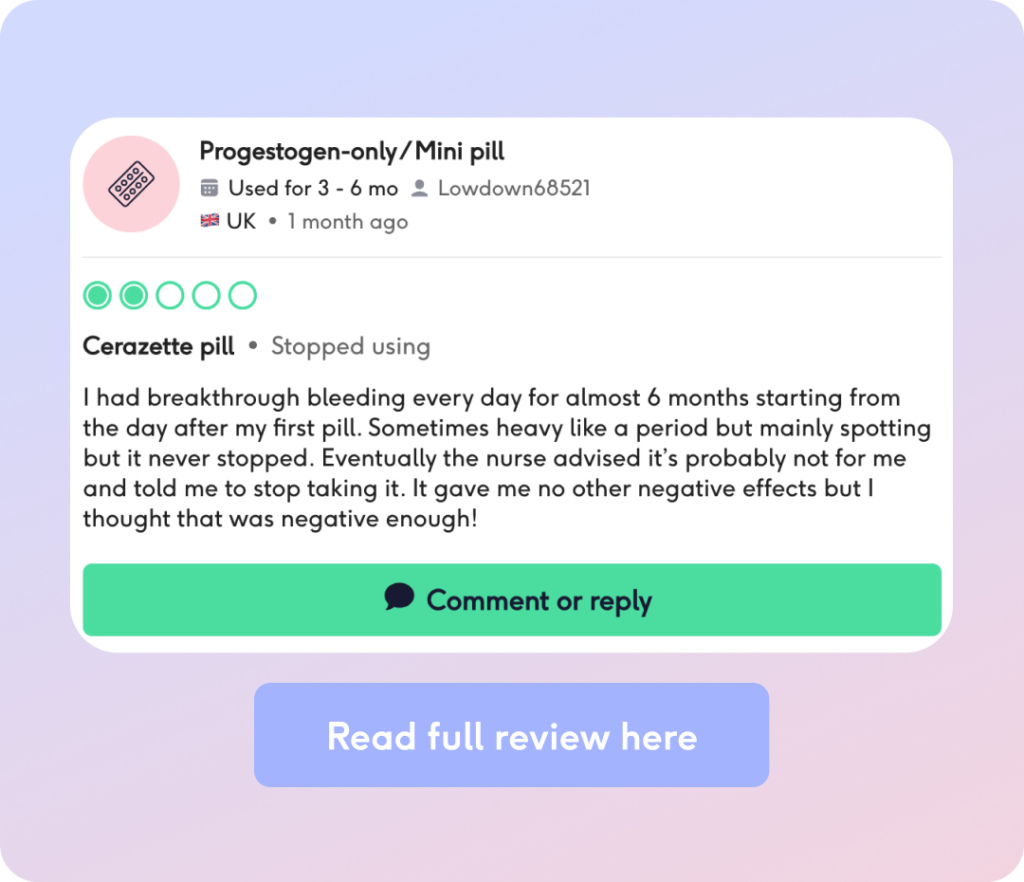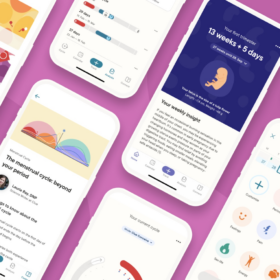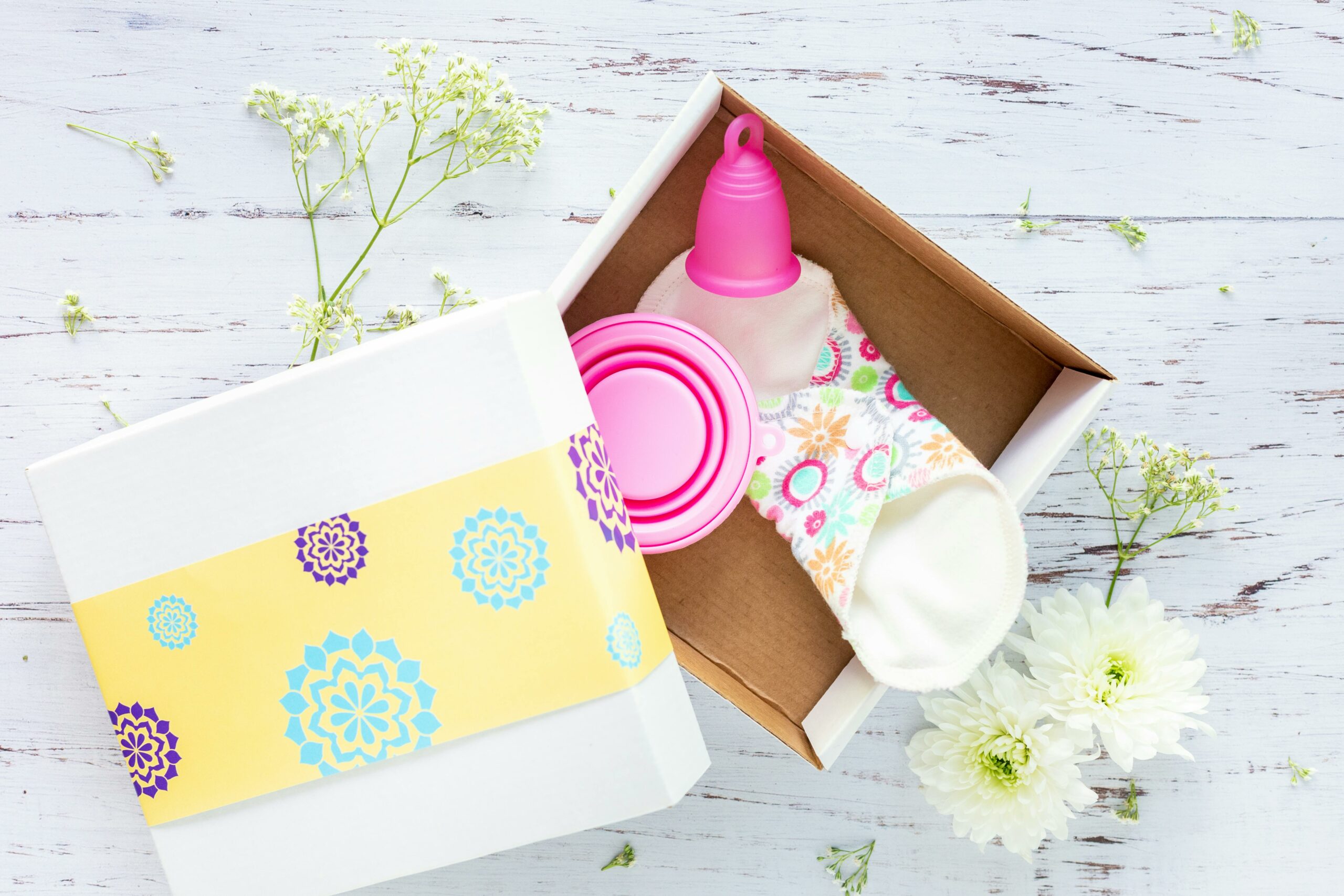
Bleeding between periods
In this article
What's the lowdown?
Bleeding between your periods can also be referred to as spotting or intermenstrual bleeding
Different underlying conditions, lifestyle factors or medications might be a cause
Sometimes, it can even be a natural occurrence due to ovulation or perimenopause
It does not always have to be a cause for concern but should be checked out by your doctor if you bleed between periods for 3 months or have associated symptoms
Wait am I bleeding again? But I just had my period! Should I be worried? Is something wrong? I need answers. Well, you have come to the right place. You want answers, we got answers.
Bleeding between periods
There might be times in life when you notice bleeding between your periods. It might not be as heavy or bright as a period but yes it is blood. This is called intermenstrual bleeding. You might have also heard the word spotting. Spotting is medically defined as vaginal discharge that contains blood, but for many people intermenstrual bleeding and spotting are the same thing.
Bleeding between periods or spotting or intermenstrual bleeding (yes another term) occurs in 13% to 21%1 of assigned women and females at birth (AFAB). There are many reasons why someone might experience intermenstrual bleeding.
Why am I bleeding between my periods?
Any form of bleeding between your periods can be frustrating. You never know when it’s going to surprise you or how heavy it is going to be. Do I wear a panty liner or carry a pad to be safe?
Causes of bleeding between your periods are numerous2. They include:
- Hormonal contraception – this can be in any form: the combined pill, progestogen-only pill, vaginal ring, hormonal coil, implant, injection or patch
- Emergency contraceptive pill
- Medical termination of pregnancy (an abortion using pills)
- Sexually transmitted infection (STI)
- Miscarriage
- Cervical ectropion – harmless changes to the cellular structure of the cervix (neck of the womb)
- Fibroids
- Polyps
- Vaginal dryness
- Fluctuations in hormone levels (usually approaching menopause, called perimenopause)
- Bleeding after sex, referred to as post-coital bleeding
- Polycystic ovarian syndrome (PCOS)
- Endometriosis
- Ovulation bleed
- Vaginal or vulval (external genitalia) cancer
- Uterine (womb) cancer
- Cervical cancer
I know what you’re thinking, this is an incredibly long list of potential causes.
If you want to learn more about spotting on hormonal birth control, spotting after sex, spotting after the morning-after pill and spotting during ovulation, we have dedicated articles for these topics.
What else to look out for?
Not all causes of intermenstrual bleeding should raise alarm bells. However, if you have bleeding between periods with other symptoms OR it persists for 3 months, please see your doctor.
Other symptoms to watch out for include:
- Pelvic pain
- Pain during sex
- Urinary or bowel symptoms
- Bloating or swelling of the tummy
- Heavy periods
- Offensive vaginal discharge
- Ulcers or bleeding from your external genitalia
If you experience any of these, then please see a doctor. Do not let anyone stop you from booking that doctor’s appointment if something doesn’t feel right.
Hormonal contraception
Each type of hormonal contraception comes with its own set of side effects, which can include spotting or bleeding between periods. It’s hard to know how each type or brand might affect you. But that is why The Lowdown was created! Our platform gives you the opportunity to share your experience and side effects of all contraceptive types so you don’t need to figure it out yourself.
Why not also share your own experiences, it can make a huge difference to someone’s contraception journey!
Sexually transmitted infection (STI)
STIs can happen if you have unprotected sex without a condom. You might notice3:
- Foul-smelling vaginal discharge
- Pain on weeing
- Spotting or bleeding between periods
- Itchy genitalia
- A rash anywhere on your body
- Lumps on your external genitalia
An STI can lead to other complications if left untreated. It is important to get tested if you have unprotected sex or you recognise any of these symptoms. The NHS has dedicated sexual health clinics to give you easy access to sexual health care.
Miscarriage
Bleeding during pregnancy is a scary experience. It can be normal to have some light bleeding during the early parts of pregnancy4 when the fertilised egg implants into the side of your womb. However, if you also feel some cramping or lose your pregnancy symptoms5, this may be a sign of a miscarriage where the pregnancy no longer continues to grow. Please speak to a doctor about this.
Fibroids
Fibroids can be a cause of heavy bleeding between periods. This growth from the muscular wall of the uterus is a common cause of heavy periods and may cause bleeding between your periods.
Perimenopausal bleeding between periods
Menopause is technically the day in our life when we are 12 months period free. Before this time point, there can be a lead-up of years (perimenopause) where you might notice changes to your periods. As our hormones change during this time, our periods might lighten, become further apart or more regular with bleeding in between them. You could also notice perimenopausal symptoms like hot flushes, night sweats, mood changes or vaginal dryness. Reaching that stage in life and unsure what to expect, look no further. Our community has opened up about their perimenopausal experiences, offering advice and support along the way.
Vaginal or vulval cancer
Cancer is a word we never hope to hear in our lifetime. Vulval cancer is a rare form of cancer, contributing to less than 1%6 of cancer cases each year. Along with spotting, you might notice skin changes to your vulval area like itching, burning or sores7.
Uterine (womb) cancer
The symptoms of uterine cancer are quite vague. Usually, this cancer type is more prevalent in post-menopausal women as the risk increases with age8. The main red flag symptom is post-menopausal bleeding. However, if you are premenopausal, you might also see changes to your period flow like heavier than normal periods or changes to your discharge, along with spotting9.
Cervical cancer
In the UK, AFABs from the age of 25 to 64 are offered free cervical screening which tests for the HPV virus which causes cervical cancer. This initiative has been put in place to catch cell changes in the cervix caused by the HPV virus early before they progress into cancer. If you haven’t already, book your screening here.
Painful sex, bleeding after sex, changes to your vaginal discharge, period changes, lower back pain and bleeding between periods are some common symptoms you might get with cervical cancer10 – so please see a doctor even if you are up to date with your cervical screening.
What do I do now?
There are many causes of bleeding between periods and they can range from “nothing to worry about” to “this needs treatment”. It might be tempting to reassure yourself that nothing is wrong but don’t leave things to chance. If bleeding occurs for 3 months or more, or you have other symptoms that concern you, please book an appointment. Record when the bleeding between periods occurs, what the blood looks like, the amount of blood and any other symptoms you have noticed. The more information you can offer, the better your doctor can get a full picture of the situation. Knowledge is power! If something does not sit right with you, get a doctor’s opinion. Your health is worth that time investment.
Our medical review process
This article has been medically reviewed for factual and up to date information by a Lowdown doctor.







